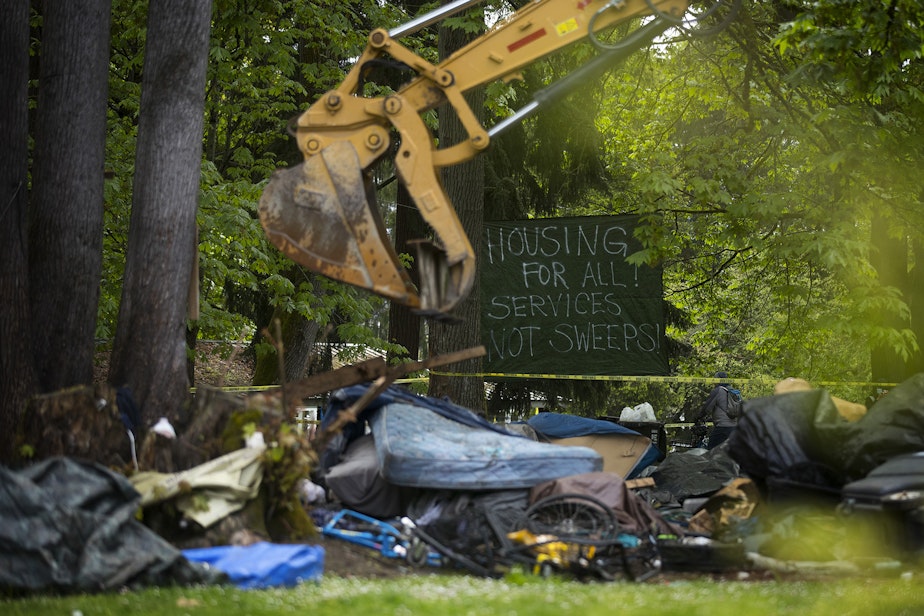Judge rules some of Seattle’s encampment removal rules are unconstitutional

A recent King County Superior Court ruling takes aim at some of the rules governing homeless encampment removals in Seattle.
The ruling from judge David Keenan found that one of the city's frequently used reasons for clearing encampments is overly broad in its definition and, in some cases, unconstitutional.
At issue in this case is the city's removal of encampments labeled as "Obstructions."
For such camps, city rules do not require prior notice, outreach, storage of belongings, or offers of shelter, aspects required for other removals.
Keenan’s ruling acknowledges that there are instances when the city has the right to remove camps without notice, for instance if there's an immediate safety risk, or a true obstruction of a public sidewalk.
But the ruling also states that the city defines “obstruction” too broadly, making some removals unconstitutional.
Sponsored
“Under the obstruction definition, the City can remove a tent or person anywhere in a park, and anywhere on a public sidewalk, irrespective of actual obstruction,” Keenan wrote.
The city’s rules “do constitute cruel punishment to the extent that they rely on the overbroad “Obstruction” definition, because that definition allows the City to move unhoused people who are not actual obstructions, without offering unhoused people shelter,” the ruling states.
The ruling comes from a lawsuit filed in 2019 by the Washington chapter of the American Civil Liberties Union (ACLU-WA) on behalf of two individuals, Bobby Kitcheon and Candance Ream. The plaintiffs say they were subject to multiple encampment removals, also known as "sweeps," while experiencing homelessness.
They say some of these removals included no warning and resulted in loss of property.
“Unhoused people have a right of privacy in the places that they call home. Absent a significant governmental interest and an offer of shelter, the City cannot simply invade the homes of people. The City’s practice ultimately destabilizes people, their communities, and can result in prolonged houselessness,” said ACLU-WA legal director, La Rond Baker, in a statement.
Sponsored
The ruling doesn’t prohibit encampment removals in the city, but it could have an impact on how the city approaches this controversial matter.
The number of people experiencing homelessness has grown in Seattle in recent years. Pre-pandemic, the city substantially increased the use of its “obstruction” rules, with a large number of encampment removals taking place without prior notice.
It remains to be seen if the definition of the rule will be narrowed in response to the court’s decision. However, this is not the final say in the matter. A spokesperson for the City Attorney’s office said the city plans to appeal the ruling.
And the broader case is not yet complete. A trial date is set for September.

